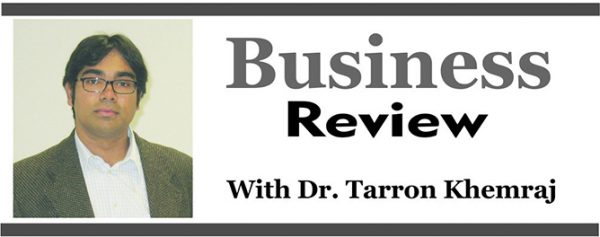 My intention was to write about the recent discontents surrounding to the alleged unwillingness of commercial banks to extend credit to small business. However, politics are once again dominating the headlines and some old themes of political economics are again occupying my thought process. These involve the strategic delays of the election that should have been held 90 days after the successful December 2018 vote.
My intention was to write about the recent discontents surrounding to the alleged unwillingness of commercial banks to extend credit to small business. However, politics are once again dominating the headlines and some old themes of political economics are again occupying my thought process. These involve the strategic delays of the election that should have been held 90 days after the successful December 2018 vote.
Three recent letters got me thinking about the Guyanese constitution once more. First, Mr. Anil Nandlall notes that constitutional reform will not promote adherence to the constitution (SN: 24/09/2019). He rightly cited Mr. Granger’s and APNU + AFC’s stubborn violation of an uncharacteristically clear aspect of the Guyana constitution. The Guyana constitution – for all its warts, sores, and backward and illicit provenance – outlines a clear procedure for what follows when Parliament passes a no-confidence motion. The delay strategy involved a convoluted interpretation of the CCJ’s ruling, as well as deliberate confusion of what constitutes a majority. It was not that some highly accomplished lawyers did not know what a majority is or did not understand basic arithmetic. The objective was to push the election out to make sure the government gets its full term, even if it involves contravening the constitution. Mission accomplished! But the delay strategy tells a story of who has real power in Guyana.
